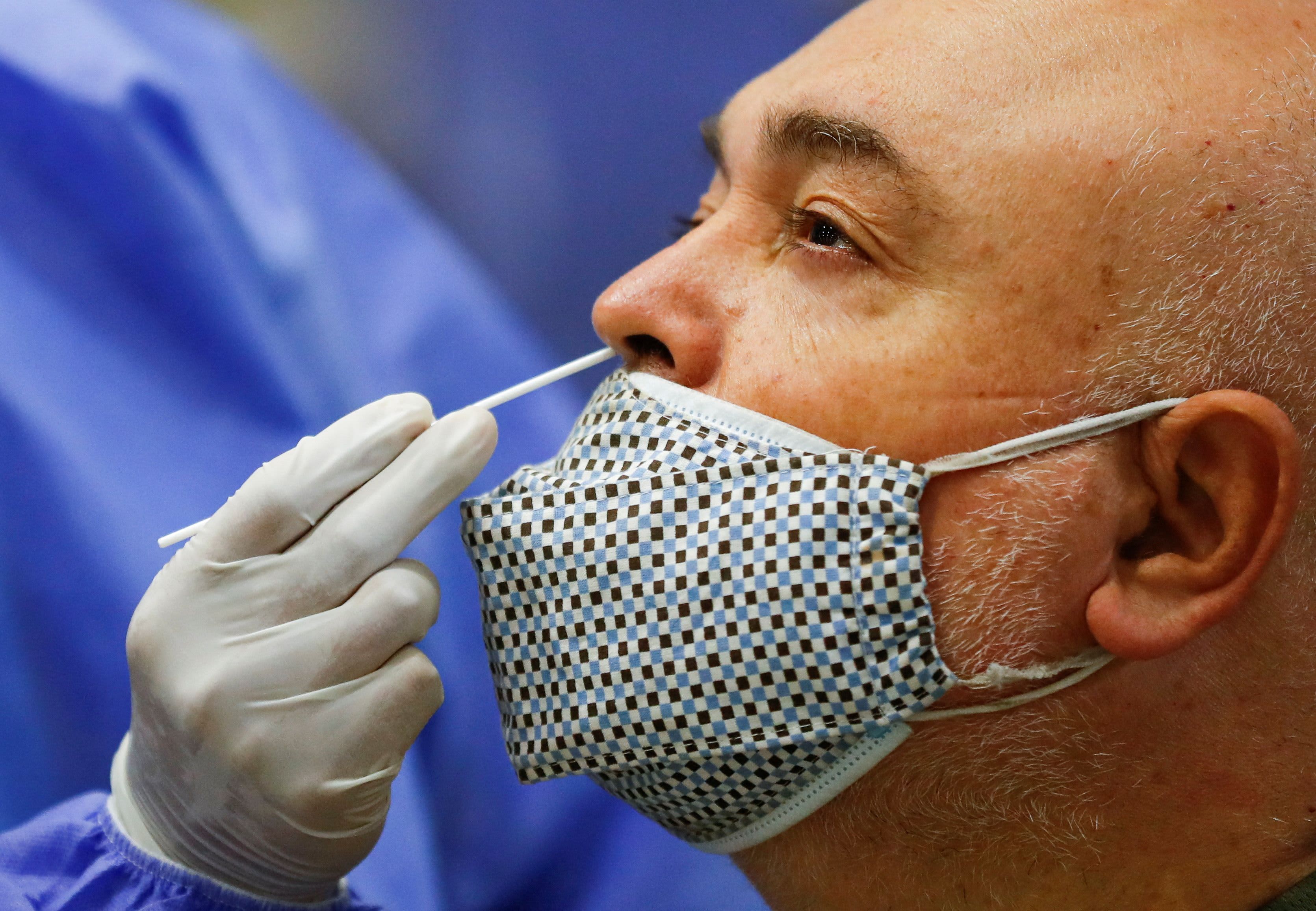A new study shows what symptoms can be expected for those who have been infected with the omicron variant of COVID-19, as well as what not to expect in terms of symptoms — which may be different from other variants.
The study released by the UK Health Security Agency studied symptoms reported from individuals who tested positive as well as negative on PCR tests in England.
Common Symptoms
The number one most common symptom among those who tested positive for the omicron COVID variant in the study was a sore throat, at near a two-to-one clip compared to other variants. In 53 percent of omicron cases, a sore throat was listed as a symptom, according to the study; for delta cases, it was just 34 percent.
However, the study also found that sore throat also became more commonly reported in negative test results as well, signifying that a sore throat may not be predictor of an omicron infection. That could have more to do with seasonable colds and other illnesses that become more common in winter, but are unassociated with COVID.
Get Tri-state area news delivered to your inbox.> Sign up for NBC New York's News Headlines newsletter.
Other common symptoms for omicron include a fever and cough, which again are similar symptoms to other seasonable ailments.
Symptoms such as muscle or joint pain, rash, nausea or vomiting, and fatigue were reported in about the same number of cases, no matter if it was delta or omicron.
Less Common Symptoms
Unlike other variants, such as delta, there was a marked decrease in the number of people infected by omicron who reported a lost of smell and taste. About a third of delta cases included in the study listed a loss of smell or taste, while just 13 percent of omicron cases reported it.
That was the biggest difference in terms of symptoms of infections between the two variants. The study also found that red or irritated eyes was significantly less common than it was for delta.
Sneezing, runny nose, shortness of breath, loss of appetite, headache and altered consciousness were reported as symptoms in delta cases slightly more frequently, but by a much lesser margin.
Vaccine Effectiveness Over Time
The study also looked at the effectiveness of the COVID vaccines over an extended period of time. It found that protection from mild illness largely went away 20 weeks after receiving the second of the two-dose regimen. After a booster, however, that protection against mild illness goes back up to around 65-70 percent — but that once again drops back down to around 45-50 percent after 10 or more weeks. The study concluded that current vaccines offered little in terms of long-term protection against infection or transmission.
Where the vaccines did show efficacy was — most importantly — in protection against severe cases, which is what experts have touted all along. Following the booster, the vaccine was estimated to prevent 92 percent of hospitalizations, and remains effective more than 10 weeks after, as it proved to be 83 percent effective, according to the study.



